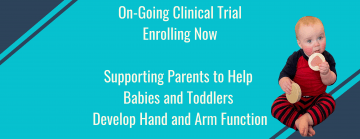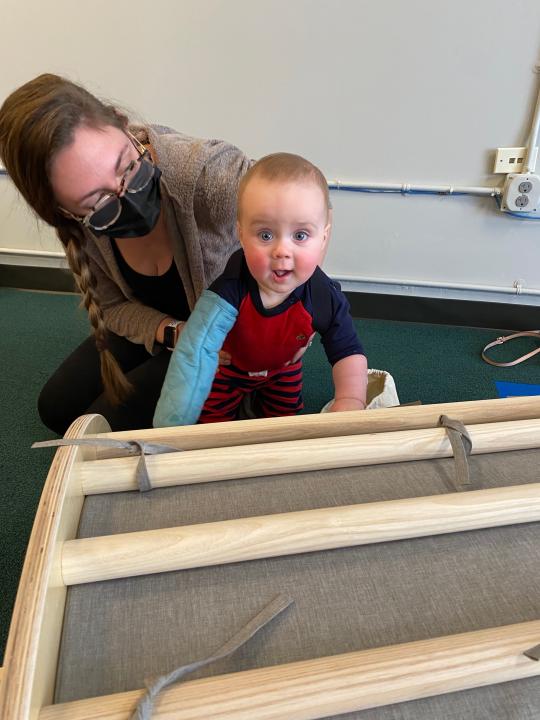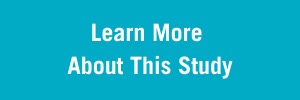

Is your child between 4 and 13 months of age? Do they have cerebral palsy, or are they high risk for cerebral palsy?
There is an ongoing research opportunity to participate in an early intervention study to help restore hand and arm function in very young children with or at high-risk for cerebral palsy!
Funded by the NIH, this clinical trial is called APPLES: A Positive Parent-focused training for upper Limb Experience with Sensory-motor feedback. The trial implemented by the Cerebral Palsy Foundation Early Detection and Implementation Network in the US and Ireland.
What are the benefits?
Researchers hope to develop therapies that help children here and across the world obtain care to help their arms and hands improve.
Participants may not directly benefit from this study, but children may gain better ability to use their weaker arm, and parents may gain a better understanding of your child's motor development.
Background Information
Among the various approaches to improve arm and hand function in infants with cerebral palsy is constraint-induced movement therapy (the use of constraints on less affected limbs) and bimanual therapy (training of both extremities in coordination). Brief sessions of parent-delivered, infant-initiated, goal-directed, success-motivated and repetitive activity in enriched sensory environments can be effective, while respecting fundamental principles of infant development and home life. Parent administration of the intervention helps preserve the integrity of early parent-child relationships, critical to establishment of infants' sense of self, safety, and independence. Finally, to take full advantage of neuroplasticity and maximize potential downstream developmental effects, it is essential to intervene as early as possible in children with CP.
Who is eligible to participate?
Children between 4 and 13 months of age who have cerebral palsy or are at high risk for cerebral palsy.
What does the research study involve?
In this study, infant participants with cerebral palsy will be randomized to one of three treatment groups:
- The APPLES intervention via telehealth (APPLES-tele) followed by a parent-centered approach (PCA) intervention
- The PCA intervention followed by the APPLES-tele intervention
- Standard of care (after 6-weeks you can then choose what program you prefer).
The study is done as a telehealth program in your home and requires 2 to 3 total in-person visits to complete assessments and answer questions about your child.
Outcome measures will be standardized assessments of hand/arm function and validated parent-report measures of infant motor activity.
About the APPLES intervention via teleheath
- 6 - week telehealth therapy program (with one in-person visit) with our occupational/physical therapist to learn simple exercises to help your baby use their weaker arm.
About Parent Centered Approach
- 6 - week telehealth parent support program (with one in-person visit) with our counselor to learn more about movement, how babies learn, and parenting tips specifically designed for your family.
Interested in learning more?
If you have any additional questions or are interested in getting started with the study, please contact us!
Contact: Jen Lyman
Email: jlyman@emory.edu or Text only: 678-476-5152
This study is being led by Dr. Nathalie Maitre at Emory University.
"Parent administration of the intervention helps preserve the integrity of early parent-child relationships, critical to establishment of infants' sense of self, safety, and independence."

